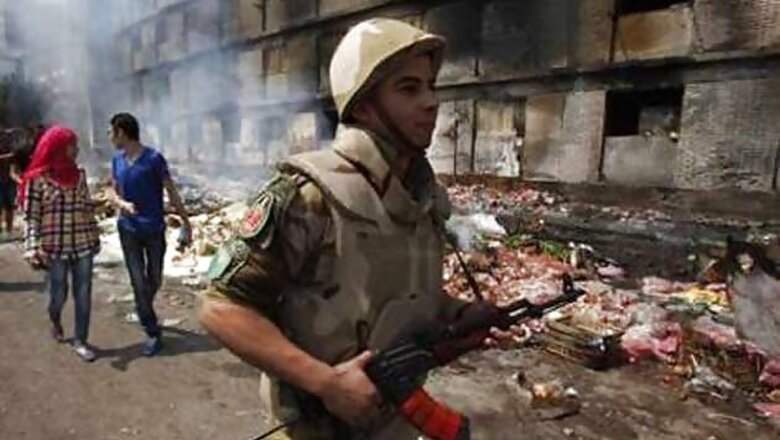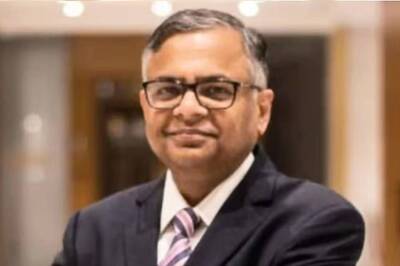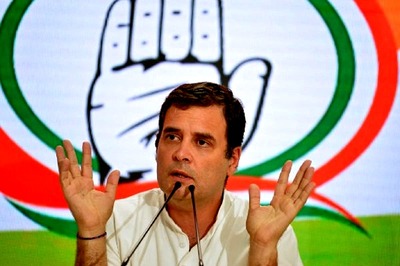
views
Deeply polarised Egypt braced for renewed confrontation on Friday, with sympathisers of the Muslim Brotherhood expected to stage protests to denounce a ferocious security crackdown on Islamists that killed hundreds.
Defying criticism from major Western allies, Egypt's army-backed government warned it would turn its guns on anyone who attacked the police or public institutions after protesters on Thursday torched a government building in Cairo.
At least 623 people died and thousands were wounded on Wednesday when police cleared out two protest camps in Cairo set up to denounce the military overthrow on July 3 of Egypt's first freely elected president, the Islamist leader Mohamed Morsi.
It was the third mass killing of Morsi supporters since his ousting. The assault left his Muslim Brotherhood in disarray, but they warned they would not retreat in their showdown with army commander General Abdel Fattah al-Sisi.
"After the blows and arrests and killings that we are facing, emotions are too high to be guided by anyone," said Brotherhood spokesman Gehad El-Haddad.
Friday prayers have proved a fertile time for protests during more than two years of unrest across the Arab world, and the Muslim Brotherhood has called for "a Friday of Anger" in towns and villages across Egypt.
In a counter move, a loose liberal and leftist coalition, the National Salvation Front (NSF), called on Egyptians to protest on Friday against what it said was "obvious terrorism actions" conducted by Muslim Brotherhood.
Signalling his displeasure at the worst bloodshed in Egypt for generations, US President Barack Obama said on Thursday normal cooperation with Cairo could not continue and announced the cancellation of military exercises with Egypt in Deptember 2013.
"We deplore violence against civilians. We support universal rights essential to human dignity, including the right to peaceful protest," he said, taking a brief break from his holidays to deliver the sharp rebuke.
The United States on Thursday renewed a warning to its citizens to leave Egypt because of the ongoing unrest. It issued the same advice in July 2013.
Washington provides Egypt with $1.5 billion in annual aid, most of it military. But its influence over Cairo has been called into question during the recent turmoil, which has seen Saudi Arabia, Kuwait and the United Arab Emirates pledge $12 billion in assistance, making them more prominent partners.
By comparison with Western anger, the UAE said Egypt's government had "exercised maximum self-control".
The Arab nations' cash, which started arriving in July, is aimed at stabilising Egypt's wobbling economy, which is suffering from a ballooning budget deficit and high inflation.
This week's carnage will do further damage to state coffers. The government has set a dawn-to-dusk curfew that it says will last at least a month and will deal a further blow to the crucial tourism industry.
The streets of Cairo were unusually quiet on Thursday, many shops remaining shuttered as people stayed away from work.
However, there was little sympathy for the Brotherhood, which won all five elections following the downfall of veteran autocrat Hosni Mubarak in 2011, but was accused of incompetence and partisanship during Morsi's brief time in charge.
"We didn't want this to happen, but at the end of the day they pushed us to do it," said Mahmoud Albaz, 33, an actor and real estate agent who lives near the Brotherhood protest camp at the Rabaa al-Adawiya mosque, now blackened by fire and soot.
Many of those who died on Wednesday were still laid out more than a day later in Cairo morgues and at a city mosque. Their families accused the government of putting bureaucratic hurdles in their way to make it hard to obtain permission to bury them.
Under Islamic tradition, bodies ought to be buried within 24 hours of death.
"We arrived at 7 a.m. The whole family is here," said Atif Hashim, a 50-year-old teacher, who was in line, waiting to collect the body of his cousin, a father of five young children.
"They just drink tea inside, they just throw the bodies on the floor with some ice," he said of officials in the morgue.



















Comments
0 comment